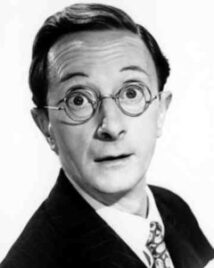Coming from a theatrical family (although not related to the famous Edwardian actor Sir Charles Hawtrey, he did "borrow" his last name), Charles Hawtrey made his stage debut at age 11 after having spent several years in a prestigious acting school. A string of stage roles followed, and by 1929 his success led him to move into radio. His success in that medium led to his entry into films, often working alongside noted comedian Will Hay. He continued his stage, radio and film work, although he scored more success on stage.
In 1958 he began work in the series for which he would achieve his greatest fame, the "Carry On" comedies. His stringy build, birdlike features, what has been described as his "outrageously posh" voice and his somewhat fey character's eccentricities made him one of the most popular of the "Carry On" gang. However, that very popularity indirectly led to his exit from the series. He believed that his character's prominence, and the fact that he had more experience in the business than most of his co-stars, entitled him to receive a higher billing in the series than he was getting. The producers didn't see it that way, and after Carry on Abroad (1972), he departed the series. Hawtrey was, by most accounts, almost as eccentric in real life as his character in the "Carry On" series was; one of his characteristics was to speak in an unintelligible language of his own making, which was only understood by a few of his closest friends. After he left the series he semi-retired from the business, making an occasional appearance in a movie or TV show. He had suffered from arthritis for a long time, and by 1988 his doctors told him that the condition had become so serious that his legs would have to be amputated in order to save his life. He refused, and died almost a month later. He was 73.

